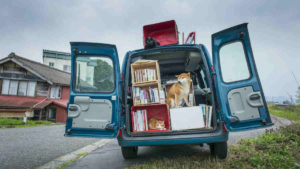Dr Boreham’s Crucible: Has Anteotech got Covid tests down to an ART form?

Pic: Luis Alvarez / DigitalVision via Getty Images
Anteotech (ASX:ADO) chief Derek Thomson admits there is no shortage of COVID-19 tests out there, which poses the question of why the ‘surface chemistry’ outfit is joining the aspiring entrants at a time when vaccination programs are being rolled out in earnest (except here, of course).
Thomson argues the testing market can’t be seen as an amorphous mass. Clinical testing for COVID-19 might peak – it hasn’t yet – but the screening market will only grow as borders re-open and mass gatherings return.
The test for the bug itself is an antigen test for severe acute respiratory syndrome coronavirus-2 (Sars-Cov-2). COVID-19 is the illness caused by the virus and a COVID-19 test is an antibody blood test showing whether the user has developed antibodies to the virus or has had the vaccine.
‘Covid’ has become common usage for both.
Many of us have had a polymerase chain reaction, or PCR test for Sars-Cov-2 which is considered the gold standard for reliability. But the tests have to go to the lab for analysis, resulting in the need for the subjects to isolate until they get their results.
“I think [rapid testing] will be the bigger part of the market and will have some longevity to it,” Thomson says.
In March, Anteotech won Conformité Européenne (CE) mark approval for its portable antigen rapid test (ART), which the company claims is more reliable than rival assays.
The company has already been supplying raw material for its unlisted Brisbane-based peer Ellume, which is rolling out a home-based test.
Anteotech also has other strings to its bow, including a research program to improve the efficacy of lithium-ion batteries.
With the Indian pestilence raging on, Anteotech last month took advantage of its buoyant share price by unveiling a circa $16 million capital raising: $12 million by way of a placement and $4 million through a share plan (see ‘financials and performance’).
About Anteotech
Known initially as SSH Medical, the company listed in April 2000 with pretty much the same tech as it has now (nano-polymer technologies). But it didn’t really go anywhere until 2018, when the board honed its focus under new chairman Jack Hamilton.
The then Anteo Diagnostics was primarily focused on its “molecular glue” (see below) before acquiring Belgium’s diagnostics company Diasource for $34 million in 2015, changing its reporting currency to Euros and then selling it for $24 million in September 2017 and returning to Australian dollars.
In October 2017, it jumped 178 per cent to 2.5 cents on a refocus on lithium-ion batteries
After the brief reign of CEO and energy expert Harley Frankfurt, financial whiz Thomson joined in August 2019 with a clear agenda to commercialise the business.
“I was selected on the basis that the building blocks of a business were there but someone needed to put it together, IKEA-style,” he says.
The chosen gambit was to convert the raw materials diagnostic business into a test developer in its own right.
Five years before the virus struck, Anteotech had already become involved with Ellume, which was developing its own so-called “quantum dot” technology.
Anteotech enjoyed a significant ramp-up in profile after Ellume’s test was approved in the US. In February, the company won a $US235 million ($A305 million) contract to supply the US armed forces with tests.
After all, you can’t fight the enemy on an empty stomach – or when you’re gasping for breath.
‘Double-sided sticky tape’
Anteotech makes lateral flow immunoassays, which are simple devices aimed at detecting a pathogen in a liquid sample without the need for costly lab equipment.
A non-technology person, Thomson explains the underlying nano-polymer product, Anteobind, as “double-sided sticky tape”.
Thanks, Derek!
He says a particle surface is usually unstable and that’s especially the case for Europium, the element at the heart of the test.
“Europium is a highly sensitive fluorescent element,” Thomson says.
“When shone under [ultra violet] light, the antigen lights up like a Christmas tree, there’s absolutely no doubt you are positive.”
But an effective test depends on the antigen being ‘captured’ and the unstable Europium particles don’t do this well.
“So, you need a double sided ‘sticky tape’, one side to stick to the particle and the other to stick to the antigen.”
The enhanced particle stability also means the tests are reproducible and thus can be mass manufactured.
In the case of Ellume, the addition of Anteobind gave them the ability to replicate the data dot technology, hitherto only achievable in the lab.
Spruiking the benefits
Anteotech’s test consists of a small desktop reader, into which the cassette (containing the patient sample) fits.
A result is available within 15 minutes.
Anteotech claims 97.3 per cent sensitivity (correct positive results) and 99.6 per cent specificity (correct negative results).
More commonly, visual tests use stable gold particles, rather than Europium (stock pregnancy tests, for instance).
The company sources its Europium from Germany’s Merck GmbH. It’s even more expensive than gold, but a small bottle will be enough for one million tests.
Eyeing broader markets
The company is in the process of signing up European distributors, probably on a country-by-country basis.
“The screening market is dynamic because it hasn’t been around before, it’s quite embryonic,” Thomson says.
“There are some big government tenders and also some industry procurement exercises, notably in the airline market.”
For the time being, at least, the US market is off limits because it’s more crowded.
Locally, the company is eyeing Australian Therapeutic Goods Administration approval, which would open up some Asian markets that accept the agency’s certification.
The company has also fielded interest from mining companies operating in Papua New Guinea, where COVID-19 remains rampant.
Another opportunity lies with vaccine manufacturers who need to test their product for quality control.
The company is working on such a test for the Serum Institute of India, which was involved in developing the Astrazeneca vaccine and is now flat out meeting domestic demand.
Sepsis and other catastrophes
Anteotech’s further plans lie in rolling out a “multiplex” test that combines COVID-19, influenza A and influenza B testing.
Based on saliva testing rather than the ‘brain stab’ method with a long cotton bud, the test is expected to confer a strong competitive advantage.
The company is also eyeing a rapid test for sepsis, the non-viral life immune reaction (or overreaction) to infection that has killed more people than COVID-19.
“We are working on that test now and we will have it out late next year,” Thomson says.
“There’s no herd immunity for sepsis, so it’s going to be around for a while.”
Anteotech hopes to roll out its Covid test within the next three months, the multiplex test within six to nine months and the sepsis test next year.
Charging up the battery program
While Anteotech’s share-price fortunes have been driven by the life sciences side, management urges investors not to overlook the company’s battery program that uses the same (albeit tweaked) polymeric chemistry.
Because this is a biotech column rather than renewables, we won’t go into detail.
But the short version is that Anteobind can enhance the glue (the binder) that sticks the anode materials together.
Anteotech has also developed Anteox, which changes the binder from a benign glue to an electrochemically charged component of the battery.
The ultimate purpose is to enable the batteries to have more capacity relative to their volume and weight.
Finances and performance
Anteo’s recent half-year accounts acknowledged a “material uncertainty” about the company continuing as a going concern and in mid-April Thomson admitted the balance sheet was “light on”.
Struck at 26 cents a share, the capital raising should assuage any doubt. The placement is done and dusted, while the share placement plan (also at 26 cents) should be oversubscribed given there’s currently a 38 per cent gain on the table.
The last time the company raised funds was for $2.15 million in March last year – at a miserable 1.5 cents a share, compared to last week’s high of 41.5 cents.
Development of the COVID-19 test was aided to the tune of $1.4 million or so by the Queensland Government’s Exported Goods and Supply Chain program.
The company chalked up $546,000 in December half-year sales, mainly by selling the baseline Anteobind ‘ingredients’. Thomson expects small revenues from the COVID-19 test this quarter, with more meaningful sales later in calendar 2021.
Before the placement, Anteotech’s share register was overwhelmingly retail, with only one party holding more than five per cent.
Don’t forget the bread and milk (and COVID-19 test)
Discount store Aldi sells violins alongside canned pickles, so we shouldn’t be surprised that it now stocks home COVID-19 tests in its German home market.
Selling for 25 Euros ($A39) for a pack of five, the assays sold out within hours after hitting the shelves in March.
The German government allows one free test per citizen per week, but the Aldi kits are pitched more as a reassurance tool than a hospital-standard test.
“The jury is out as to whether they hinder or help,” Thomson says.
For Anteotech, the benchmark is the US wholesale price of $US10-12 ($A13-15.50) for similar tests, or $US40-50 in the end user’s hands.
Not surprisingly, governments and insurers have been willing to subsidise the cost of such assays.
Anteotech share price today:
Sizing up the ASX chums
Of the ASX-listed COVID-19 test developers in the lateral flow assay space, Thomson says Anteotech is closest to Atomo Diagnostics, which listed in April last year.
Atomo already had a rapid blood-based test for HIV and quickly tweaked the device for COVID-19. Atomo’s business model involves providing the device to other test manufacturers in the US and Europe.
Genetic Signatures was one of the first to get a COVID-19 test to market, based on the alternative science of lab-based molecular diagnostics.
TBG Diagnostics also sells a European-approved molecular test via a Chinese affiliate, but the story is a bit murky.
Dr Boreham’s diagnosis:
Anteotech claims its assay ranks among the world’s top five rapid tests for sensitivity, which will be a key selling point in an eventual market shake out.
“Of the high sensitivity tests, not many use saliva and that will also differentiate us,” Thomson says.
He says Anteotech has attracted interest from “people of all walks of life and locations,” as evidenced by the strongly supported raising.
But with added interest comes added scrutiny.
“We are under a lot of market pressure to get some revenue, because of our market cap,” he says.
“We do have to get our ducks in a row in terms of how we are going to make the business robust and not give us growing pains along the way.”
Indeed. Investors haven’t exactly held back while the company aligns these canards and it would do no harm to give management the breathing space to execute its plans.
Disclosure: Dr Boreham is not a qualified medical practitioner and does not possess a doctorate of any sort. As impressed as he is with double-sided sticky tape, he would pay big dollars for a technology that enables the user to locate the start of the reel or normal sticky-tape.
This column originally appeared in Biotech Daily

UNLOCK INSIGHTS
Discover the untold stories of emerging ASX stocks.
Daily news and expert analysis, it's free to subscribe.
By proceeding, you confirm you understand that we handle personal information in accordance with our Privacy Policy.








